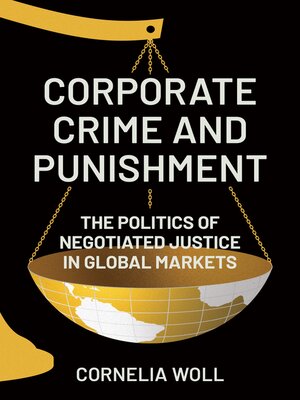Corporate Crime and Punishment
ebook ∣ The Politics of Negotiated Justice in Global Markets
By Cornelia Woll

Sign up to save your library
With an OverDrive account, you can save your favorite libraries for at-a-glance information about availability. Find out more about OverDrive accounts.
Find this title in Libby, the library reading app by OverDrive.



Search for a digital library with this title
Title found at these libraries:
| Library Name | Distance |
|---|---|
| Loading... |
The geopolitics of American law enforcement and how it changed corporate criminal accountability in other countries
Over the past decade, many of the world's biggest companies have found themselves embroiled in legal disputes over corruption, fraud, environmental damage, tax evasion, or sanction violations. Corporations including Volkswagen, BP, and Credit Suisse have paid record-breaking fines. Many critics of globalization and corporate impunity cheer this turn toward accountability. Others, however, question American dominance in legal battles that seem to impose domestic legal norms beyond national boundaries. In this book, Cornelia Woll examines the politics of American corporate criminal law's extraterritorial reach. As governments abroad seek to respond to US law enforcement actions against their companies, they turn to flexible legal instruments that allow prosecutors to settle a case rather than bring it to court. With her analysis of the international and domestic politics of law enforcement targeting big business, Woll traces the rise of what she calls "negotiated corporate justice" in global markets.
Woll charts the path to this shift through case studies of geopolitical tensions and accusations of "economic lawfare," pitting the United States against the European Union, China, and Japan. She then examines the reactions to the new legal landscape, describing institutional changes in the common law countries of the United Kingdom and Canada and the civil law countries of France, Brazil, and Germany. Through an insightful interdisciplinary analysis of how the prosecution of corporate crime has evolved in the twenty-first century, Woll demonstrates the profound transformation of the relationship between states and private actors in world markets, showing that law is part of economic statecraft in the connected global economy.







